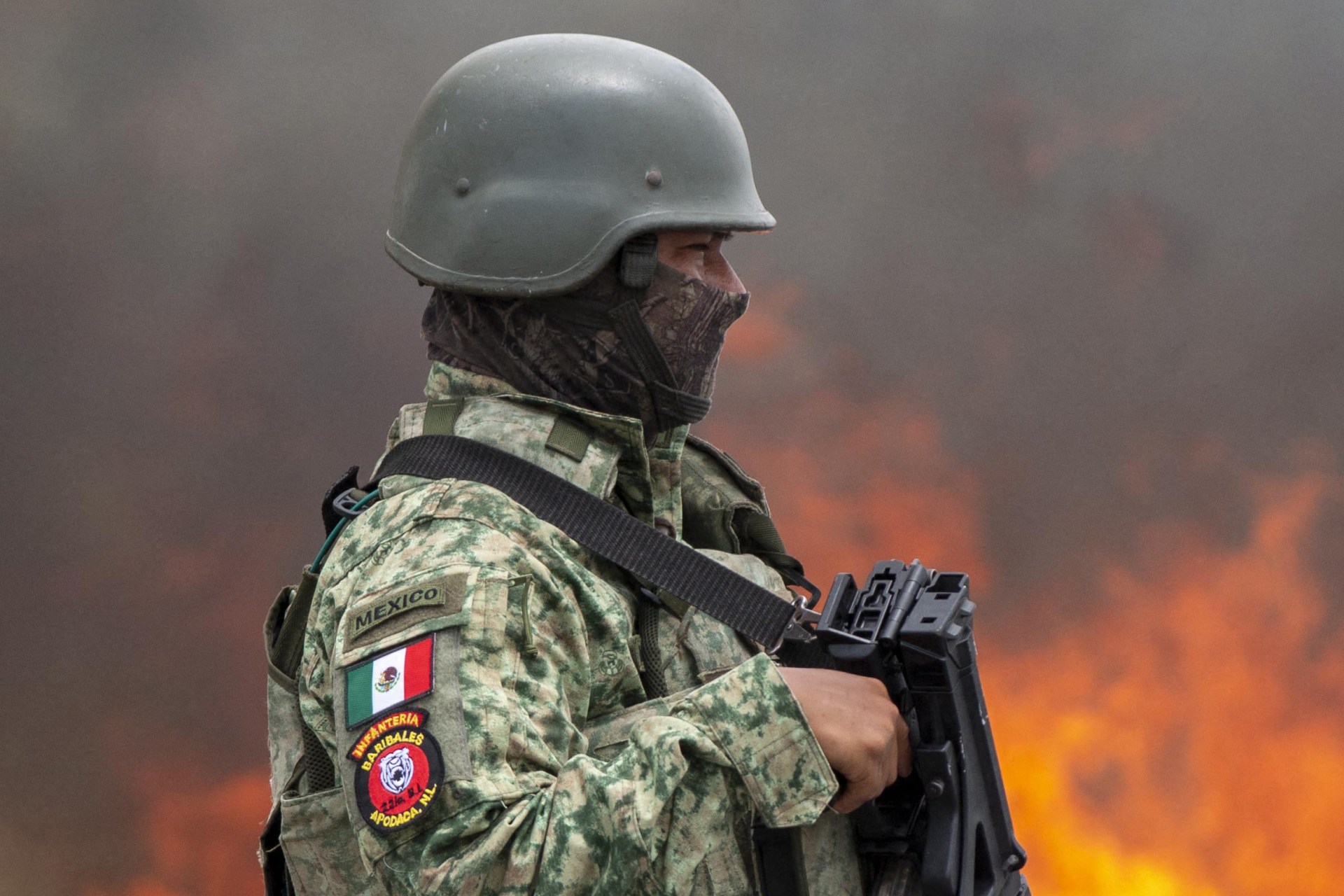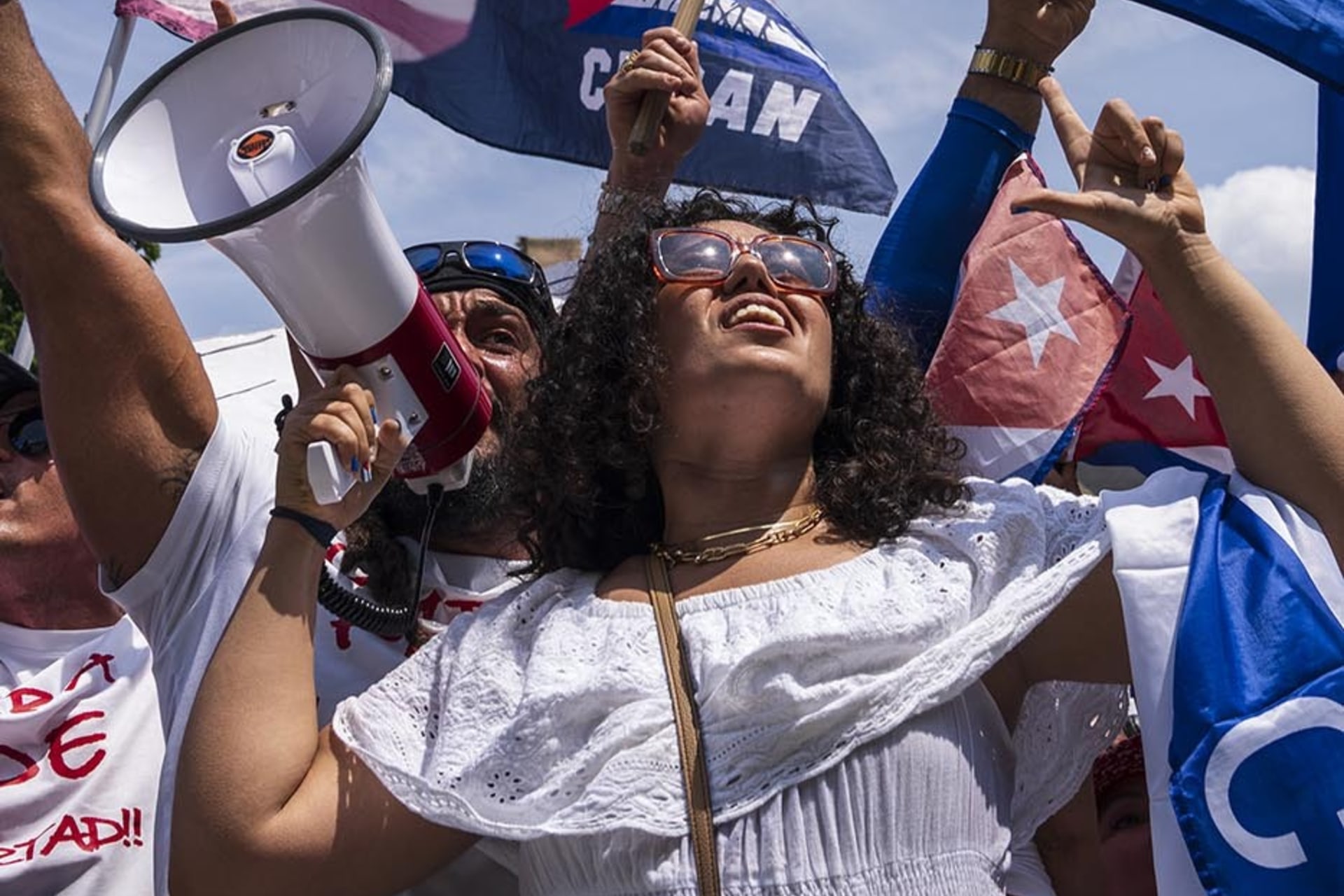State Sponsors: Cuba
Published
Updated
The U.S. State Department continues to list Cuba as a state sponsor of terror, though most experts say the country no longer poses a threat to U.S. national security.
This publication is now archived.
Introduction
Cuba has been a fixture on the U.S. State Department’s list of terrorism-sponsoring states since 1982 despite Fidel Castro’s announcement in 1992 that supporting insurgents abroad was no longer an active Cuban policy. According to the State Department, Cuba remains on the list because it has “publicly opposed” the U.S.-led war on terror and maintains friendly relationships with other state sponsors of terrorism, like Iran. Cuba in the past has provided shelter to fugitives from U.S. justice without extradition and hosted members of terrorist organizations. Though Fidel Castro transferred power to his brother Raul in July 2006, little has changed in Havana’s relations with the United States. In early 2010, the United States included Cuba on a list of countries whose citizens will receive additional screening in the wake of the attempted Christmas Day bombing of a Detroit-bound flight. State Department spokesman P.J. Crowley said, “Cuba is a designated state sponsor of terrorism, and we think it’s a well-earned designation given their long-standing support for radical groups in the region.” The Cuban government denounced the measures (Reuters), saying they were “politically motivated” and a “hostile action” by the United States.
Does Cuba support terrorism?
The U.S. government says yes, but many experts are skeptical. The State Department placed Cuba on its list of states that sponsor terrorism in 1982, citing Fidel Castro’s training and arming of communist rebels in Africa and Latin America. But intelligence experts have been hard pressed to find evidence that Cuba currently provides weapons or military training to terrorist groups. In 1998, a comprehensive review by the U.S. intelligence community concluded that Cuba does not pose a threat to U.S. national security, which implies that Cuba no longer sponsors terrorism. Critics argue that Cuba’s place on the state sponsors list is a remnant of the Cold War and that it distracts from current counterterrorism initiatives. In the 2008 Country Reports on Terrorism, the State Department reported that Cuba “no longer actively supports armed struggle in Latin America and other parts of the world” but affirmed that “the Cuban government continued to provide safe haven to several terrorists.”
Why does the United States list Cuba as a state sponsor of terrorism?
U.S. government sources offer these reasons:
- The State Department’s 2006 Country Reports on Terrorism found that Cuba “publicly oppose[d]” the war on terror and made no attempt to “track, block, or seize terrorist assets.” However, the 2008 report drops this language and states that there is no evidence of terrorist-related money laundering or financing activities in the Cuban banking system.
- Cuba provides safe haven to several Americans who face criminal and terrorism charges in the United States. Although the Cuban-American pre-1959 extradition treaty has lapsed and renewal attempts have been scuttled by anti-Castro members of Congress, the Cuban government said in 2005 that they would no longer provide haven for American fugitives. The 2008 Country Report notes that Cuba rejected an American fugitive who fled to Cuba in 2006 and has not provided safe haven to any new U.S. fugitives wanted for terrorism since 2006.
- Cuba has provided “limited support” to designated Foreign Terrorist Organizations, as well as safe haven for terrorists, such as members of the Basque terrorist group ETA--despite a November 2003 public request from the Spanish government to deny them sanctuary. The State Department also says that Colombia’s two leftist rebel groups--the National Liberation Army (ELN) and the Revolutionary Armed Forces of Colombia (FARC), both of which regularly carry out acts of terrorism--maintain a “permanent presence” in Cuba. But experts agree that the Castro government ceased arming or training the former group in 1991 and never gave military support to the latter. The Colombian government, the United Nations, and the European Union all say that Cuba has played a useful role in advancing peace talks with the rebels, holding six rounds of peace talks since 2005 according to a 2007 Congressional Research Service report (PDF). Furthermore, according to the 2008 Country Report, on July 6, 2008, former Cuban President Fidel Castro called on the FARC to release the hostages they were holding without preconditions.
Does Cuba have weapons of mass destruction?
In May 2002, Undersecretary of State John Bolton accused Cuba of having a limited biological weapons program and selling dual-use biotechnology to rogue states. Bolton did not name the states in question but noted that Castro visited Iran and Libya in 2001. Former Secretary of State Colin Powell later clarified Bolton’s statement by saying he did not believe Cuba had bioweapons, merely the capability to conduct biological research for offensive purposes.
Does Cuba have ties to states designated by the State Department as sponsors of terrorism?
Yes, but the full extent of their cooperation is not known. Cuba retains decades-old bilateral agreements with blacklisted nations such as Iran and Syria, and much anti-American rhetoric has passed between Fidel Castro and leaders in those countries. However, imports and exports from these countries make up only a minority of total Cuban trade.
Cuba supports Iran’s nuclear ambitions and opposed IAEA rebukes of secret Iranian enrichment sites. The two countries have banking agreements (Islamic Republic News Agency), economic cooperation and lines of credit ( FNA), and three-way energy-focused treaties with Bolivia (CSMonitor). Cuba and Iran hold regular ’Joint Economic Commission’ meetings; the latest, in November 2009, further expanded bilateral trade and economic ties.
How did Cuba react to the September 11 attacks?
Within hours of the attacks, Cuba offered medical assistance to the victims and opened Cuban airports to U.S. commercial planes diverted because of the crisis. That night, Castro condemned terrorism on national television. In subsequent weeks, the Cuban government signed all twelve U.N.-sanctioned international antiterrorism treaties.
At the same time, Cuban officials also used the opportunity to repeatedly complain about Cuba’s own experience as a victim of what it calls “U.S.-sponsored terrorism,” including attacks by U.S.-backed anti-Castro groups. The complaints went over poorly in Washington, where they were viewed as evidence of Cuba’s waffling commitment to fighting terrorism.
Has Cuba been in contact with U.S. intelligence since September 11?
Yes. Notwithstanding Cuba’s presence on the terrorist list, experts say that U.S. and Cuban officials have held low-level talks aimed at getting Cuban help in collecting intelligence and identifying fugitives from Osama bin Laden’s al-Qaeda terrorist network. But these discussions have reportedly yielded few results, and counterterrorism experts say communist Cuba knows little about the Islamist groups behind the September 11 attacks. Cuba has not, to date, implemented “counterterrorism efforts in the international or regional fora,” according to the State Department, although Raul Castro pledged in 2002 to return any detainees who escaped from the Guantanamo Bay Naval Base.
Nestor Bailly contributed to this report.t





